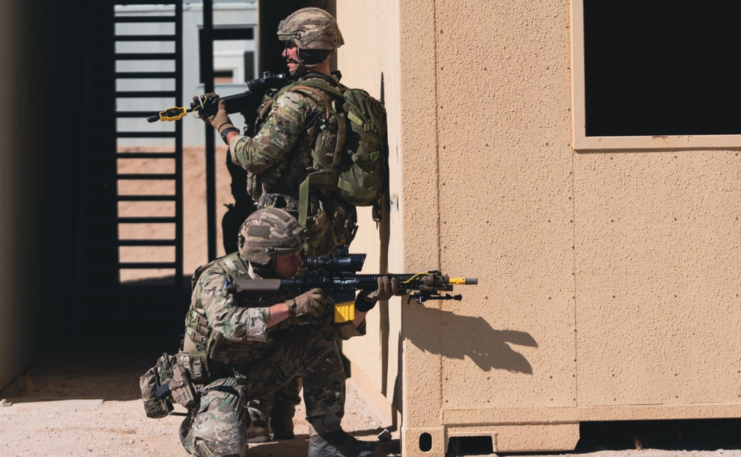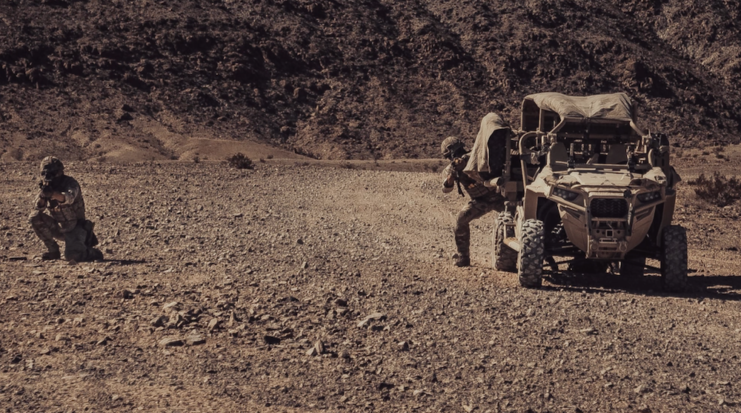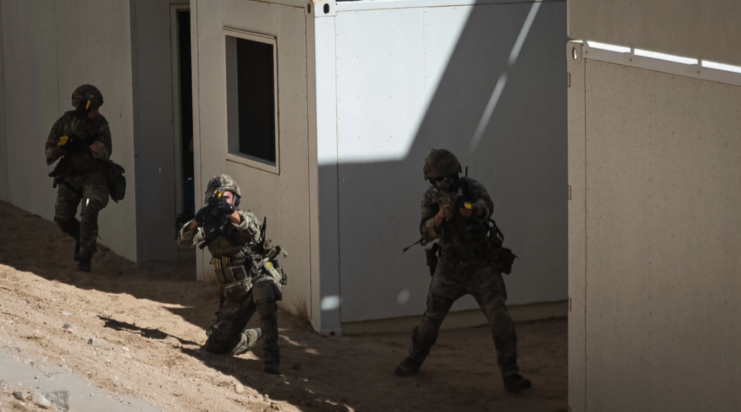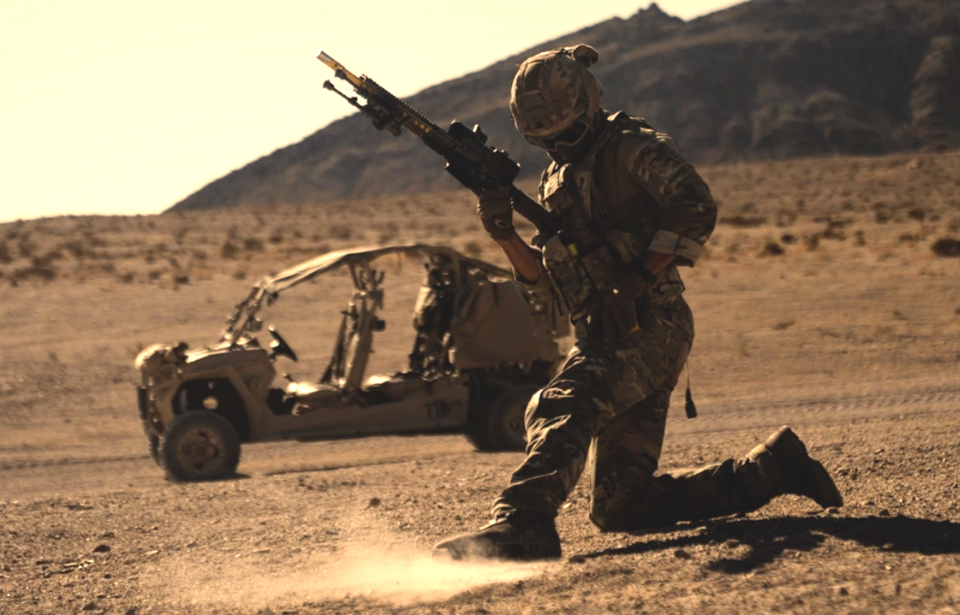The United States Marine Corps is firing back after newspapers in the United Kingdom reported the service was “dominated” by the Royal Marines during a training exercise in California’s Mojave Desert.

The training exercise – called Green Dagger – occurred this past October at the Marine Corps’ Twentynine Palms base. The Royal Marines had spent the better part of two months in the US preparing for deployments in 2022. For the exercise, they teamed up with Marine forces from Canada, the Netherlands and the United Arab Emirates.
According to the US forces, it was a routine “deployment for training” opportunity for the Royal Marines, with training including live-fire and non-live-fire events.
The Royal Marines reportedly won a handful of decisive battles early into the exercise and gained considerable ground. When the US forces launched a counter-attack, the British commandos carried out raids behind enemy lines. According to reports, the Marine Corps’ asked for the exercise to be “reset” halfway through, having suffered significant casualties.
By the end, the UK forces had destroyed almost all of the US’ assets and gained control of two-thirds of the land, despite starting with less than a fifth. According to the Royal Marines, their success was the result of targeting the American headquarters and equipment, which hurt the Marine Corps‘ ability to launch counter-attacks. This, paired with artillery attacks on vehicles and fighter jet support, allowed them to repel the Marine Corps’ last attempt to counter.
U.S. Marines are fortunate to train with allies and partners all over the world, every day – including our brothers and sisters in the @RoyalMarines. As fellow soldiers of the sea, we have a unique and proven bond shared by those who have earned the title “Marine”. pic.twitter.com/4yCufoZceU
— U.S. Marines (@USMC) November 3, 2021
The training exercise was a way for the British forces to test their new Littoral Response Group (LRG) structure, which will be the new template for commando units. The LRG are Royal Navy task groups centered around commando forces, and are capable of working with the carrier strike group to create an expeditionary strike force that can operate anywhere in the world.
Speaking about the exercise’s success, Lieutenant Colonel Andy Dow, Commanding Officer of 40 Commando, said:
“Our success has proved the new commando force concept is more lethal and sophisticated than ever before and I am immensely proud of every member of the LRG and their vital contributions. Operating alongside our partners from the USA, Netherlands, Canada and the UAE gives us a fantastic opportunity to test, integrate and continue to push our capabilities in new and innovative directions.
“Through this deployment our focus has been on integrating game-changing capabilities from across the commando force to deliver disproportional effect in the face of a free-thinking peer adversary,” he concluded.

Following the exercise, the US Marine Corps tweeted their appreciation for the UK’s involvement in the exercise. “U.S. Marines are fortunate to train with allies and partners all over the world, every day – including our brothers and sisters in the @RoyalMarines,” the service wrote. “As fellow soldiers of the sea, we have a unique and proven bond shared by those who have earned the title of ‘Marine’.
“Tough, realistic training with foreign partners allows us to sharpen our skills, validate our techniques, and learn new tactics. Iron sharpens iron.”
Following reports that the Royal Marines had claimed victory, Captain Zachary Colvin, the communications and strategy director with the Marine Air Ground Combat Center, released a statement to the Military Times, in which he said there was no winner. “Winners are never determined,” he said. “This exercise does not provide an opportunity to ‘surrender,’ ‘keep score,’ or ‘reset.’ The objective of the exercise is to heighten unit performance and increase readiness.
“During this exercise, a U.S. Marine Regiment augmented with subordinate units formed an adversary force to actively challenge and test a peer regiment of U.S. Marines,” he continued. “This training opportunity increased warfighting readiness and interoperability of the U.S. Marine Corps with multinational forces. Exercise scenarios are adjusted as needed to assist commanders in meeting training objectives.”
The Marine Corps’ weren’t the only ones to speak out about the claim. Rob Lee, a Ph.D. candidate at the Department of War Studies at Kings College in London, tweeted that British publications promoting this side of the story undermine the value of such training exercises.
“These kind of garbage tabloid articles (no one surrendered and 40 commando was teamed with US Marine units) are the kind of thing that threaten future US-UK exercises, which are beneficial for both sides. They also mistake the purpose of these exercises.”

The Royal Marines have not responded to the statement released by the Marine Corps.
